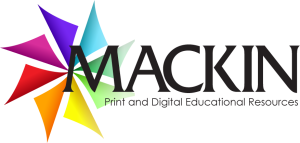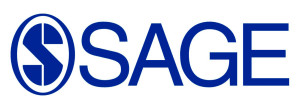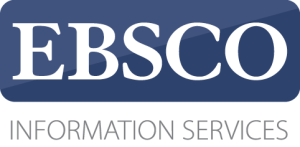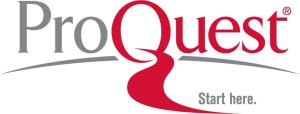WiLSWorld 2015 Program Schedule
Tuesday, July 21st (conference)
Wednesday, July 22nd (workshops)
REGISTER HERE for the WiLSWorld 2015 conference or workshops.
9:00-9:15 Welcome and Introductions
9:15-10:30 Keynote address with Kelvin Watson, Vice President Digital Services & Strategy and Interim Vice President Information, Technology, and Development, Queens Public Library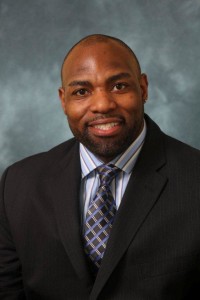
Libraries invest with a variety of eResource providers to license a rich array of eResources for its patrons and are sometimes forced to rely on a complex set of proprietary interfaces to navigate and deliver them. Only the most savvy patrons are able to keep track of a large number of separate usernames and passwords and website URLs. Even when this barrier is crossed, accessing the eResource (or even finding out what is available) requires the user to follow links out of the library’s system and over to the eResource provider’s system. These systems are often “walled gardens,” where the eResource provider, not the library, controls the user’s experience, and it is difficult for the user to make their way back to the library site if they don’t find what they need on the vendor’s site. This complexity hinders the patron’s ability to easily discover, engage with, and consume the library’s valuable investments and instead often concludes in frustration and failure. The Queens Library has embarked on a project to radically improve the way library patrons discover and access eResources. Queens Library intends to create a Virtual Library System that will provide a best of breed solution for accessing eResources for all of Queens Library’s patrons. This System will eventually allow Queen’s patrons to have seamless access to digital materials all within Queens Library’s own web and mobile interfaces. This system will replace the unwieldy model that creates many barriers for users looking to access digital content, barriers that run the range from software that is too complicated for those with little digital experience to navigate, to the lack of access to devices on which content can be consumed. Libraries have to continue to reach beyond the confines of its physical locations and extend its presence into people’s homes by providing devices that will let patrons interact more deeply with the Library’s offerings. The Virtual Library System will keep Queen’s Library’s doors open twenty-four hours a day, seven days a week and shifts the balance of power from providers to libraries and patrons.
Sponsored by:
10:30-10:45 Break
10:45-11:45 Concurrent Sessions (3)
Virtual Worlds, Real Libraries: The Evolution of Gaming and Virtual Learning in Libraries
Petey Lawrence-Wehrle, Access Services Assistant – ILL, University of Wisconsin Law Library
Janice Scurio, Teen Services Librarian, Madison Public Library
This presentation will look at the history of interactive learning and gaming in libraries and educational settings. Everyone wants to be able to offer their patrons the best resources for learning and entertainment. In a time of limited budgets, it will ask the question: when is the right time to consider investing in tech heavy programming considering such factors as cost, educational value and the fleeting popularity of technology over time?
In the presentation, we use the example of Second Life and Minecraft to advocate for an examination of the professional literature before investing heavily in a currently popular learning tool or game that may or may not be the right fit given your intended use and desired outcomes.
Audiovisual Digitization and Quality Control: How do people really do this?
Charles Hosale, A/V Project Archivist, University of Wisconsin-Milwaukee Archives
Dana Gerber-Margie, Audio Archivist, Wisconsin Historical Society
Is your organization facing a collection of aging a/v formats that you wish to digitize for preservation or access, and you’re not sure how to proceed? UWM Archives A/V Project Archivist Charlies Hosale and WHS Audio Archivist Dana Gerber-Margie share their respective experiences with vendor based and in-house digitization of audio and visual materials such as VHS, 35mm film, audiocassettes, and vinyl. Dana will discuss the innovative in-house digitization initiatives at the Wisconsin Historical Society. Charles will present UWM’s quality control workflow for A/V materials that utilizes open source programs, such as Sonic Visualizer, QCTools, MediaInfo, and Fixity to ensure the fidelity of digitized records. Attendees will leave with an introduction to current A/V digitization and quality control topics and techniques, practical understanding of and exposure to relevant software and resources, an implementable A/V digitization workflow designed for use in small and middle-sized cultural heritage institutions, and the feeling that they too can tackle A/V materials without being format and digitization experts.
From Network Revolutions and Trends in Information to a National Public Policy Agenda for Libraries
Marc Gartler, Manager, Madison Public Library – Sequoya & Alicia Ashman Libraries
A member of the advisory committee for ALA’s Policy Revolution! will facilitate a discussion about trends and challenges identified in research by the ALA Office of Information Technology Policy. These trends and their implications are guiding the formation of a national public policy agenda that will guide focused and energetic outreach to key decision makers and influencers.
11:45-12:45 Member Lunch
12:50-1:35 Makerspace Showcase
Have some fun and create cool things at your colleagues’ mobile makerspaces! Participate in these activities and bring them home to your own library for your community to enjoy.
- Ten Minute T-Shirt Totes with Kimberly Boldt of St. Norbert College’s Mulva Library
- Touchscreen Controller with Angela Vanden Elzen of Lawrence University’s Seeley G. Mudd Library
- Menagerie of Strange Objects with Joshua Cowles of Fond du Lac Public Library
- Stop Motion Animation and Fingerprint Art with Holly Storck-Post of Monroe Public Library
- Squishy Circuits / Snap Circuits with Melody Clark of Arrowhead Library System
- Art Programming with Craig Grabhorn of c.Cal Design Studio
- Team MKE Mixers: Mobile Makerspace for Milwaukee County with Beth Henika, Krista Hutley, Jennifer Loeffel, Emily Passey, and Sandra Speare of ILEAD Wisconsin 2015 – Team MKE Mixers
- Team WisCode Literati with Joshua Cowles, Holly Storck-Post, Melody Clark, and Kimberly Boldt of ILEAD Wisconsin 2015 – Team WisCode Literati
1:45-2:45 Afternoon Plenary
Technology with Teeth: A Panel Discussion of Promising New Tools, Trends, and More!
Adam Brisk, Reference & Emerging Technology Librarian, University of Minnesota-Duluth
Dan Jacobson, Administrator/Innovator, South Central Library System
Tasha Saecker, Assistant Director, Appleton Public Library & WiLS chair (Moderator)
Angela Vanden Elzen, Reference & Web Services Librarian, Lawrence University
Kelvin Watson, Vice President Digital Services & Strategy and Interim Vice President Information, Technology, and Development, Queens Public Library
Join our esteemed panel for a fast-paced hour of presentations and Q&A about technology developments that will impact the library world. Panelists will share their thoughts about top new technologies poised to change how libraries work and interact with those they serve. The presentations will be followed by a moderated discussion between panelists and audience members.
2:45-3:00 Break
3:00-3:45 Concurrent Sessions (3)
Beyond Research Guides
Carol Sabbar, Director of Library and Instructional Technology Services, Carthage College
LibGuides is an amazing tool to provide, present, and promote library research resources to your community. But it can also present other various tools outside of traditional bibliographic instruction. See how Carthage College has leveraged LibGuides to promote resources and tools for statistics, language learning, preparation for grad school exams and more. We have implemented this in our academic library, but we think our uses will inspire libraries of many types to use this powerful tool in new and creative ways.
Sharing the Love: Working with the Community to Create Engaging Social Media Content
Angela M. Vanden Elzen, Reference & Web Services Librarian, Lawrence University
Holly Roycraft, Library Secretary, Lawrence University
Many challenges arise when managing a library’s social media presence, though the biggest is often generating engaging and interesting content. At Lawrence University’s Mudd Library, we’ve begun the shift from trying to create content our target audience wants, to asking them to generate it for us. We’ll share how we have been able to work with other campus departments, students, alumni, and faculty to provide concrete examples of what the library can do for our patrons- and how we have been using social media to share these stories. Attendees will be highly encouraged to share their own social media stories.
Turning Numbers into Knowledge: A Statistics Dashboard
Gus Falkenberg, Technology and Design Director, Indianhead Federated Library System
We are often swimming in data we collect about our patrons and their usage of our library resources, but how can we make sense of those numbers in a way that will help us improve or adjust our services? In this presentation, you’ll learn about a statistics dashboard created by the Indianhead Federated Library System for member libraries to see and interpret data collected from a variety of sources in order to get a fuller picture of library resource usage. This dashboard incorporates ILS data, e-materials information, and wireless and computer usage into visual data display to help libraries further understand how their resources are being used by their communities.
4:00-4:45 Concurrent Sessions (3)
Out of the Desert
Matt Mulder, Chief Community Engagement Strategist, Demco
Kimberly Young, Deputy Director, Brown County Library
In the past decade, the United States Department of Agriculture has been focusing on issues surrounding food deserts—defined as urban neighborhoods and rural towns without ready access to fresh, healthy, and affordable food. Food deserts are identified by using census data and GIS mapping tools. Those living in a food desert tend to be low-income or elderly. This lack of access to quality food results in a poor diet and in higher food expense as the residents tend to rely more on fast food restaurants or convenience stores.
Building on the concept of the food desert, we began to wonder if there might also be a literacy desert—an area that has a high-probability of having a large number of children at risk of not becoming proficient readers. If we could identify areas of a community that were most likely in need, we could develop programs, outreach efforts and services to help address this need.
Our findings were clear—literacy deserts are real, and in some cases, growing.
Matt Mulder, Chief Community Engagement Strategist at Demco, will identify and define literacy deserts in Brown County and several other Wisconsin communities and discuss how the concept can also be applied for other core service areas. Kimberly Young, Brown County Library Deputy Director will discuss the implications for her library system, and how they plan to lead their community out of the desert.
Graphic and Web Design Principles
Rob Nunez, Head of Collection Services, Kenosha Public Library
Rebecca Hall, Web Development & Marketing Director & Instructor, UW-Milwaukee
Quality graphic and web design are crucial to promoting, branding, and raising awareness of your library and its valuable services, but it’s an expensive skill to hire out. Many libraries are taking on these challenges themselves, and assisted with a variety of free or cheap online design tools, are creating websites, logos, banners, and other graphic elements for their print or online resources. This session will help those involved in creating and maintaining these to understand the principles of making appealing and effective visual materials for their libraries and services.
Artisanal Applications: In-house software development for libraries
Bruce Barton, Shared Development Group Manager , UW-Madison
Everyone, including librarians, dreams of the killer app that will work perfectly, intuitively, and do just what you want it to do, no more nor less. Sadly, many third-party applications fail to meet the ideal, some more so than others. How many times have you thought, “what if I build it myself?” This presentation, aimed primarily at library IT directors and project managers, will attempt to cover the some of the answers to that question.
Among the points that will be addressed:
- Making the build-versus-buy decision
- Lifecycle of application development and maintenance
- How do we involve stakeholders outside the IT departments? How do they involve developers?
- What has worked well, what could use improvement?
During the course of the presentation, we will draw on lessons learned and experience developing and maintaining Forward, the UW Madison General Library System public OPAC, developed in-house by the GLS’s software development department.
4:45-6:00 DPLA Reception
Join us to celebrate Wisconsin’s developing partnership with the Digital Public Library of America! Recollection Wisconsin, a collaborative initiative of the Milwaukee Public Library, UW-Madison, UW-Milwaukee, WiLS, Wisconsin Department of Public Instruction, and Wisconsin Historical Society, is poised to become a DPLA Service Hub, opening up exciting new opportunities for libraries and cultural heritage organizations across the state. Chat with DPLA Service Hub representatives and have some cake!
REGISTER HERE for the WiLSWorld 2015 conference or workshops.
Wednesday, July 22nd
9:00-9:30 Welcome and Coffee
9:30-10:45 Concurrent Workshops I
Digitization Basics for Archives and Special Collections – Part 1: Select and Scan
Michael Edmonds, Deputy Administrator, Division of Library-Archives, Wisconsin Historical Society
Josh Hickman, Digital Resources Librarian, Beloit College
Emily Pfotenhauer, Recollection Wisconsin Program Manager, WiLS
This is the first part of a two-part, full-day workshop introducing the core elements of creating digital collections of historic photographs, documents and other archival materials. Part 1 focuses on selecting materials to digitize and the basics of reformatting. We’ll start with some recommendations for planning a successful project and consider how your digital collections can fit into the statewide and national landscape of digital content. We’ll discuss copyright concerns in order to help you answer the question “CAN I put this online?” And we’ll explore the vocabulary of digital images, including pixels, resolution and bit depth as well as tools and best practices for scanning photographs and documents.
SQL 101 — Tables, Queries, and a Little MS Access: A Hands-On Introductory Workshop
Eric Giefer, Director, Information Technology, UW Law School
Join Eric for a hands-on opportunity to learn the basics of SQL! He’ll cover basic SQL language, and some behind the scenes details on what SQL looks like, while at the same time covering how to use MS Access to create and edit queries.
Using Microsoft Access as the tool to build and run your queries, you’ll learn:
- Simple queries selecting data, counting data, and summarizing data.
- How to link tables together to build more sophisticated reports
- How to modify how tables are linked together to pull in information that only exists for some records but not others
- Concepts around database design for understanding of limitations of spreadsheets, why multiple tables are used, and some commentary of things to look for to make your life easier as you work with vendor tables and try to decipher why the vendors database is the way it is.
MS Access is very powerful and we’ll be scratching the surface on what it can do using it to make SQL more accessible. We’ll cover what SQL looks like providing basic understanding of both SQL and how to use MS Access to quickly generate queries to access and compile data. We’ll be focused on tables, queries and SQL in MS Access, the workshop will not cover forms, reports or other advanced MS Access topics.
This workshop will not cover how to do any web programming, or how to setup the database connections. For specific databases, the vendors will provide documentation on how to setup, and depending on security settings on your work machine, your IT folks may have to be involved.
On Target: Marketing and Promoting Your Library and Services
Renee Ettinger, Reference and Instruction Librarian, UW-Green Bay Cofrin Library
Paula Ganyard, Director, UW-Green Bay Cofrin Library
Emily Passey, Assistant Director, Shorewood Public Library
We all struggle with finding ways to make our library and its services visible to our community. We know they are valuable but how do we reach our potential users? This workshop will help you identify your community groups as well as your key services and set you on the path toward creating a promotional campaign to get the word out about the good work that you do.
10:45-11:00 Break
11:00-12:30 Concurrent Workshops I Continued
12:30-1:30 Lunch (on your own)
1:30-2:45 Concurrent Workshops II
Digitization Basics for Archives and Special Collections – Part 2: Store and Share
Catherine Phan, Metadata Librarian, University of Wisconsin Digital Collections Center
Jesse Henderson, Digital Services Librarian, University of Wisconsin Digital Collections Center
Steven Dast, Digital Asset Librarian, University of Wisconsin Digital Collections Center
Bradley Shipps, Continuing Education and Outreach Librarian, Outagamie Waupaca Library System
Jessica Williams, Library Director, Mount Horeb Public Library
This is the second part of a two-part, full-day workshop introducing the core elements of creating digital collections of historic photographs, documents and other archival materials. Part 2 focuses on sharing your digitized materials with the world and steps you can take to ensure that they’ll remain usable and accessible into the future. We’ll define metadata and why it’s important, and consider approaches to creating descriptive metadata for discovery of historical resources. We’ll examine the issue of digital preservation, including practical steps you can take to preserve your digital content with limited resources. And we’ll think about digitization as a path to community engagement, including reaching out to your community for content and promoting your digital collections to your users.
What’s on your mind? A Social Media Workshop
Melissa McLimans, Digital Services Librarian, UW Digital Collections Center
Emily Passey, Assistant Director, Shorewood Public Library
Vicki Tobias, Media Archivist, UW-Madison Archives
Do you “do social media” for your library, but want to know how to do it better? You have lots of great things to share, but how and to whom? And why? This workshop will help you create an engaging social media presence through activities to identify your audience and your community social media partners, develop a social media strategy, and craft interesting communications to draw in your library users and stakeholders.
2:45-3:00 Break
Sponsored by
3:00-4:30 Concurrent Workshops II Continued
REGISTER HERE for the WiLSWorld 2015 conference or workshops.

